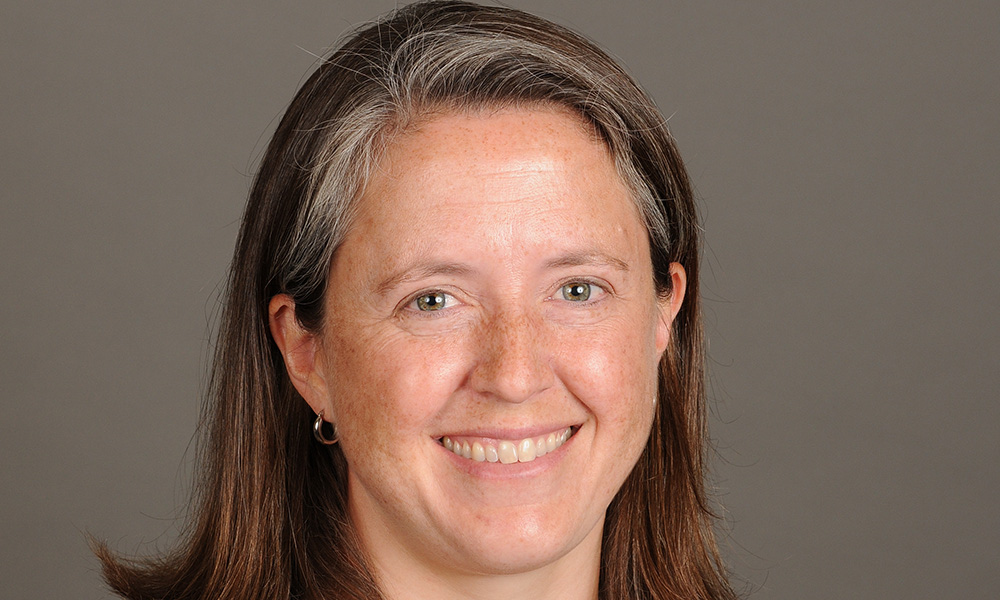Each year, Denison University honors an outstanding professor with the prestigious Bonar Family Mentorship and Teaching Excellence Award at the college’s annual Academic Awards Convocation. This year, the award was given virtually to Karen Spierling, professor of history and director of the Global Commerce program. The Bonar Family Mentorship and Teaching Excellence Award recognizes exemplary mentoring and teaching by a Denison faculty member.
Speaking of Spierling, Denison Provost Kim Coplin noted, “Karen’s course offerings provide a model for dynamic liberal arts engagement, exploring topics such as: rupture and revolution, leadership in a globalized world, the narratives of a Venetian courtesan, emerging markets in a developing economy, and tales of the divine, demonic, and supernatural.”
“An internationally recognized scholar who is an exemplar of expanding beyond the familiar, she has been a principal leader of curricular innovation at Denison while also continuing to excel at the enduring instruction of helping students to frame incisive historical questions, embed social and political developments in their unique context, and analyze primary sources. This range of pedagogy and curriculum stems from Karen’s central commitment to building students’ capacities to communicate the value and applicability of the humanities and a liberal arts education. Whether it is in engaging students in developing strategies to take on risk or in exploring the world of 16th century witches, saints, and skeptics, she inspires and mentors her students to attain the bountiful rewards of applied humanistic inquiry.”
Spierling joined Denison in 2010. She holds a bachelor’s from Yale University and a master’s and doctorate from the University of Wisconsin, Madison. In both her teaching and research, Spierling explores the connections between the many different factors—social, economic, political, and religious, to name a few—that shape the development of human societies and individual decisions across time and place, and particularly in early modern Europe, her region of specialization. As the director of Denison’s Global Commerce major, Spierling works to foster our majors’ understanding of the ways those same kinds of factors shape today’s commercial relationships and the global economy. One of her primary goals is to help majors articulate the ways that a liberal arts approach to problem-solving prepares them for success in the commercial and non-profit worlds.
One of things that Spiering particularly enjoys about teaching at Denison is the opportunity to work one-on-one with students advising senior research projects and summer projects. Both in these one-on-one experiences and with her classes, one of Spierling’s primary goals is to engage students in conversation about challenging topics and push them to think critically about their own ideas and their sources of information. “For me, the most exciting moments of teaching are when I have to stop and think about something in a new way based on how a student talks about the sources we are examining.”
Spierling’s research interests focus on the history of the Reformation, in particular the interplay among religious, social, and political concerns in the development and spread of Reformed (Calvinist) Protestantism in the sixteenth and seventeenth centuries. Her current book project explores sixteenth-century concepts of scandal (including religious, political, and economic scandal) and the roles those ideas played in defining and shaping Reformed communities. She received a Robert C. Good Faculty Fellowship to fund her research and writing and spent her sabbatical in 2016-2017 living and working in Nantes, France.
Recently, Spierling has also contributed to national and international conversations on the importance of the humanities, interdisciplinary thinking, and the liberal arts approach to higher education. She has published essays on these topics in the Chronicle of Higher Education, Times Higher Education, and the Cleveland Plain Dealer.
